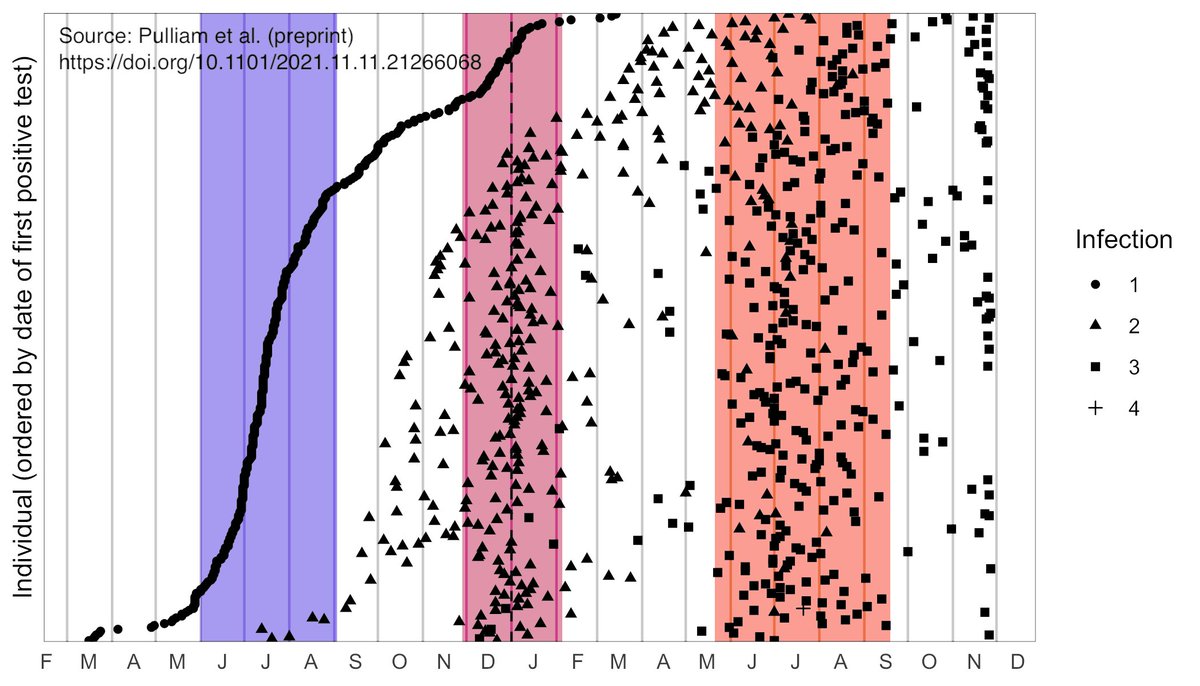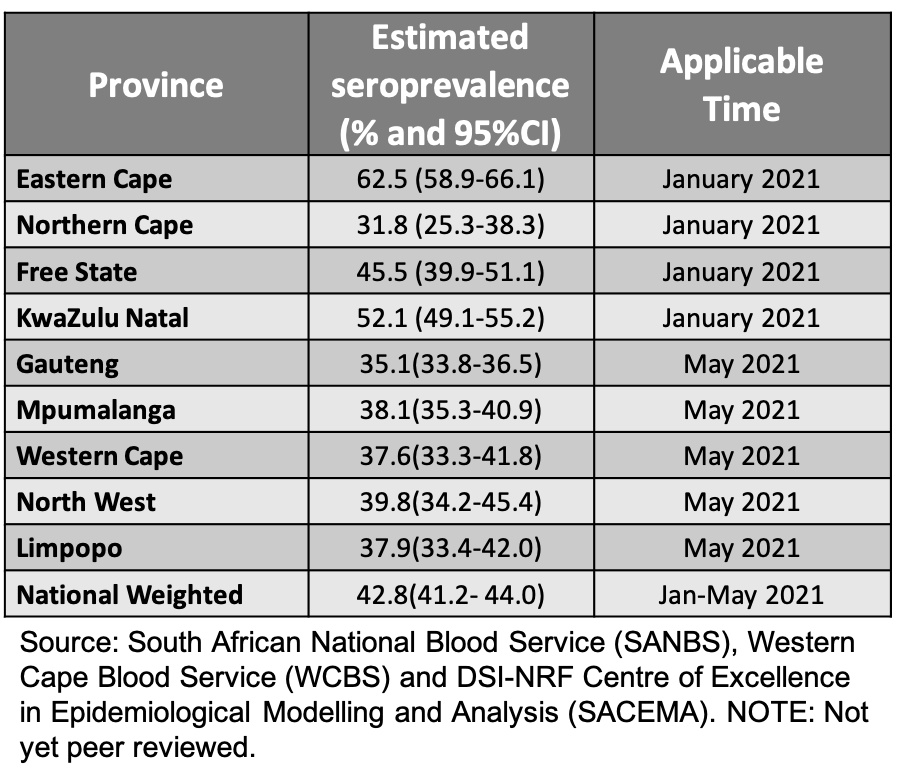
[Thread] We have updated our preprint on SARS-CoV-2 reinfection trends in South Africa to include data through late November. @hivepi @jd_mathbio @carivs @Dr_Groome @nicd_sa #SACEMA
doi.org/10.1101/2021.1…
#notyetpeerreviewed
doi.org/10.1101/2021.1…
#notyetpeerreviewed
https://twitter.com/SACEMAdirector/status/1460176349335896075
We find evidence of increased reinfection risk associated with emergence of the #Omicron variant, suggesting evasion of immunity from prior infection. @scienceSUN @NRF_News 

We developed 2 methods to monitor signatures of changes in reinfection risk & have used them to monitor reinfection trends in SA since Jan 2021.
Both methods account for the changing force of infection experienced by all individuals in the population and the growing number of individuals eligible for reinfection through time.
First, we construct a null model of no change in reinfection risk and compare observed patterns to projections under the null model. Using this approach, we start to see reinfection numbers exceeding the projection intervals from mid-November in Gauteng and nationally. 

In our other approach, we look at trends in the relative hazards of primary infection & reinfection. Since early Oct, we see a decreased risk of primary infection, though this could be partially explained by vaccine rollout. We see a simultaneous increase in reinfection risk. 

Recent reinfections have occurred in individuals whose primary infections occurred across all three waves, with the most having their primary infection in the Delta wave. 

We also see a recent increase in the number of reinfections in individuals who had already had multiple suspected infections from mid-November. 

These findings suggest that Omicron’s selection advantage is at least partially driven by an increased ability to infect previously infected individuals.
We do not have information about the vaccination status of individuals in our data set and therefore cannot make any assessment of whether Omicron also evades vaccine-derived immunity
Immune escape from prior infection, whether or not Omicron can also evade vaccine derived immunity, has important implications for public health globally, but there is still a lot we don’t know.
Next steps include quantifying the extent of Omicron’s immune escape for both natural and vaccine-derived immunity, as well as its transmissibility relative to other variants.
Data are also urgently needed on disease severity associated with Omicron infection, including in individuals with a history of prior infection. /end
• • •
Missing some Tweet in this thread? You can try to
force a refresh




